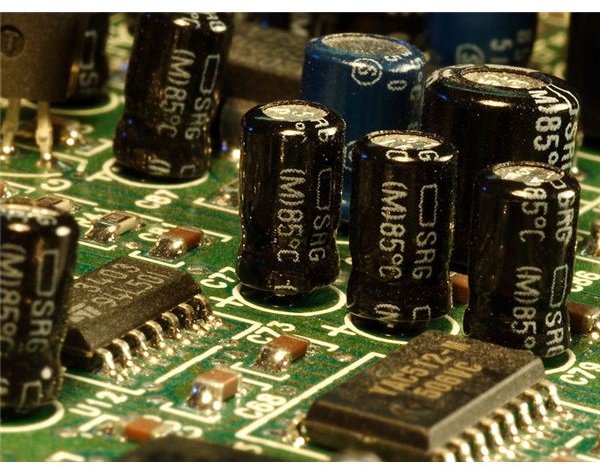An Overview of a Great College Course: Computers Hardware Options

The technology industry is one of America’s most dynamic sectors with new companies and firms regularly developing innovative products and services. Improvements in computer hardware are critical to the Web and the rest of the economy; improving hardware lowers the cost of computers while increasing computing capacity. Ambitious computer hardware engineers have many specializations available; designing computer batteries and power systems, digital storage systems, displays and user interfaces are some of the fields available to professionals in this field. Read on to learn more about electrical engineering and hardware engineering college programs and what these programs require.
Electrical Engineering
Majoring in electrical engineering opens many different careers to students. Designing new hardware components, creating large scale electrical systems, and developing new forms of power generation are some of the roles of electrical engineers. The Institute of Electrical and Electronics Engineers (IEEE) is the main professional organization for engineers in this field. Students in this field typically study physics, mathematics, chemistry, engineering ethics and technical writing. To better understand the requirements of electrical engineering degrees, read profiles of these two leading programs.
California Institute of Technology Electrical Engineering
Tuition: Undergraduate tuition at Caltech is approximately $36,000 per year in the 2011-2012 academic year.
Courses: First year students take courses in physics, mathematics, semiconductor sensors, microprocessor systems, principles of microprocessors and an electronics lab. Suggested elective courses include solid-state electronics, communications and signal processing and bioengineering. Fourth year students undertake independent projects and a thesis.
Department of Electrical Engineering and Computer Science, MIT
Tuition: Tuition at MIT in the 2011-2012 academic year was approximately $39,000 per year.
Courses: Courses offered at MIT include circuits and electronics, signals and systems, electromagnetic energy, computer system engineering, electric power systems and robotics.
Program features: MIT offers an Industrial Connection Program that brings together students and employers in joint projects. In addition, there is a summer program for students interested in research and programs to support women in engineering.
Computer Hardware Engineering
The admissions requirements for students interested in computer hardware are broadly similar to electrical engineering. High grades in math and science courses are an absolute requirement. Beyond those fundamental requirements, engineering students are required to solve practical problems and solutions. In the case of computer hardware engineering, students will learn how to design, manage and improve computer hardware and related systems. In most cases, computer hardware courses are part of larger departments of electrical engineering. This section provides two examples of universities that offer courses in this area.
University of Illinois Urbana-Champaign
Tuition: In state students have to pay about $31,000 a year in tuition; out of students have to pay approximately $46,000 per year.
Academic offerings: In the computer engineering option, hardware oriented courses include computer systems engineering, analog signal processing, semiconductor devices and computer organization. The Urbana-Champaign program permits students 12 credit hours of electives to pursue their own intellectual interests.
Features of the program: The department has eight research centers dedicated to various branches of engineering: bioengineering, circuits and signal processing, communications and control, computer engineering, electromagnetics, microelectronics, nanotechnology and power and energy systems.
SUNY - Stony Brook
Academics: Stony Brook offers a variety of computer hardware courses including digital Systems Design, Electrical Circuit Analysis, Computer Vision, Communication Theory and Computer Architecture.
Tuition and fees: New York state residents pay about $4000 in tuition; non-New York residents have to pay about $8100 in fees. (Note: those fees are based on taking 12 credit hours worth of courses).
Special programs: Students can apply for a combined Bachelor’s and Master’s program in engineering. Students in this combined program can focus on either electrical engineering or computer engineering.
Career & Employment Outlook
According to the Bureau of Labor Statistics, the average annual earnings of electrical engineers in 2008 was $86,000 per year. The highest paying industry for electrical engineers is oil and natural gas extraction were the average earnings in 2008 came to $120,000 per year. In terms of location, Alaska and Massachusetts tend to have the most highly paid electrical engineers; the average is $100,000 in both states. Computer hardware engineers are also very well paid; the BLS reports the average annual earnings was $101,000 per year in 2008. Salaries reported by hardware engineers vary from a low of about $60,000 per year to about $150,000 per year.
In terms of employment growth, the BLS forecasts continued demand for electrical and computer hardware engineers. The growth rate for computer hardware engineers is forecast at 4% and 2% for electrical engineers for the decade 2008-2018.
Resources
Department of Electrical Engineering and Computer Science at MIT, https://www.eecs.mit.edu/
Department of Electrical and Computer Engineering at University of Illinois Urbana-Champaign, https://www.ece.illinois.edu/
Department of Electrical & Computer Engineering, https://www.ee.sunysb.edu/
Engineers (Occupational Outlook Handbooks, 2010-11 Edition), https://www.bls.gov/oco/ocos027.htm
Electrical Engineering at California Institute of Technology, https://www.ee2.caltech.edu/
Institute of Electrical and Electronics Engineers, https://www.ieee.org/
Image Credit: Jon Sullivan, Close-up of a sound card, Wikimedia Commons/JoJan, Public Domain